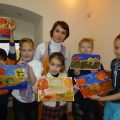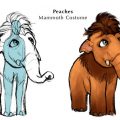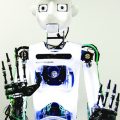Watching how the child develops a love forbooks, any parent experiences satisfaction and joy. Of course: because the child discovers the opportunity to be transferred to other worlds, to master the company of literary heroes, fascinated by them. The kid is only at the beginning of the journey: how many interesting things he has to read! If the desire for reading is encouraged, the child will not only get an interesting leisure, but also a rich inner world, developed fantasy, speech and horizons.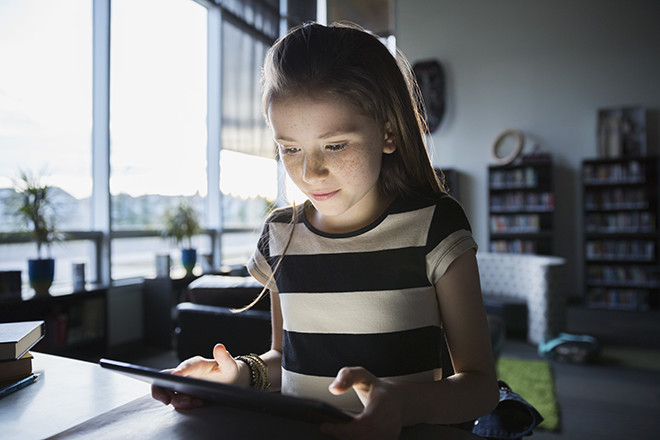 A photo: Getty Images- I remember the pleasure I, the seven-year-old, received from reading the "Valley of Adventure" Enid Blyton, "says Sadie Lewis, 39-year-old mother of 5-year-old Sam. "Now Sam starts reading his first school books, and I can barely restrain the excitement by watching his expression when he understands what words are composed of letters, and from words - history. He does not yet know what joys and discoveries he is waiting for, he is only at the beginning of the journey. But the anticipation of his discoveries is a wonderful feeling! "I was very fond of Chukovsky's" Confusion "in my childhood. I was delighted that the kittens were tired of meowing and they wanted to grunt, and that all the animals were extinguished by fire on pancakes and mushrooms. It was incredible and very fun! And of course I was very pleased when my son liked this fairy tale so much that he learned it by heart, "says Anastasia Petrova, 30. Of course, when we talk about a small reader, we imagine a child bent over pages of a paper book. But as technology affects the reading of adults, they also affect the reading of children. Western researchers state: more and more often in schools one can see children not with paper books, but with electronic devices. And although many parents are worried that children spend a lot of time at the gadget screens, most all the same reasoning is pragmatic: everything that teaches children to read and gives them pleasure from communicating with literature is good. Regardless of the format in which the book falls into the hands of the child.
A photo: Getty Images- I remember the pleasure I, the seven-year-old, received from reading the "Valley of Adventure" Enid Blyton, "says Sadie Lewis, 39-year-old mother of 5-year-old Sam. "Now Sam starts reading his first school books, and I can barely restrain the excitement by watching his expression when he understands what words are composed of letters, and from words - history. He does not yet know what joys and discoveries he is waiting for, he is only at the beginning of the journey. But the anticipation of his discoveries is a wonderful feeling! "I was very fond of Chukovsky's" Confusion "in my childhood. I was delighted that the kittens were tired of meowing and they wanted to grunt, and that all the animals were extinguished by fire on pancakes and mushrooms. It was incredible and very fun! And of course I was very pleased when my son liked this fairy tale so much that he learned it by heart, "says Anastasia Petrova, 30. Of course, when we talk about a small reader, we imagine a child bent over pages of a paper book. But as technology affects the reading of adults, they also affect the reading of children. Western researchers state: more and more often in schools one can see children not with paper books, but with electronic devices. And although many parents are worried that children spend a lot of time at the gadget screens, most all the same reasoning is pragmatic: everything that teaches children to read and gives them pleasure from communicating with literature is good. Regardless of the format in which the book falls into the hands of the child.
For printing
And what about the children who don’t know the world withoutcomputer, think about reading from the screen? Is it so harmful, and if so, how do they themselves want to read books? This question was asked by Professor Rhona Stainthorpe of the University of Reading. She surveyed 50 children aged 9 to 11 years. And although the results of communication with children will be published in 2017, the professor has already shared some conclusions. It turned out that most children (60%) prefer paper books. Yes, children like the advantages of books - for example, the dictionary function (you can quickly look up the meaning of a word), the ability to store many novels and stories on the gadget, and this is not at all as heavy as if you had to carry a stack of your favorite books with you. But it turned out that most of all children like the smell of paper books, the feeling when turning the pages, and just the very opportunity to physically hold a book in their hands. It turned out that children like to choose books by the cover and see how many pages they have already read. In short, children, like adults, like to read e-books in some circumstances and paper books in others.
For technology
A recent study conducted by the NationalThe National Literacy Trust in the UK showed that children accepted e-books more positively, and that girls and boys who read developed faster. Project manager Irene Picton shared some other results of her observations. “The project lasted for 4 months. We studied 468 students aged 8 to 16 from more than 40 schools,” says Irene. “We paid attention not only to what and how much children read, but also to their attitudes towards reading. It turned out that, for example, the number of boys who felt that reading was “cool” doubled during the study: from 34% at the beginning of the project to 67% by the end. The percentage of boys who found reading difficult decreased from 28 to 16%. And among boys who enjoyed reading the least at the beginning of the study, the proportion of those who enjoyed reading using modern technology increased from 49 to 64%, while the proportion of those who enjoyed reading on paper increased from 10 to 40%.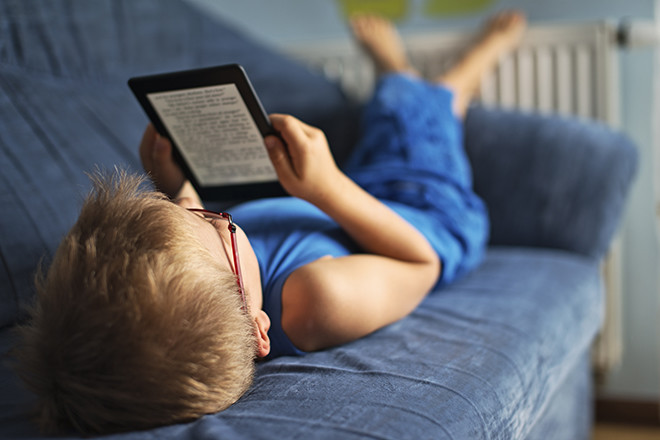 Photo: Getty Images
Photo: Getty Images
All means are good
Like paper books, e-books area much more effective tool if parents sit down to read with their child, says Professor Rhona Stainthorpe. The only potential harm from reading e-books is that we are not moving enough, but this is a common problem. And children need active rest. “Ultimately, the ability to read from a screen is a good practice for children with low levels of reading enjoyment,” says Irene Picton. “In 2012, the majority of children responding to the annual National Trust survey reported that they first began reading from a screen, rather than from a sheet of paper. This confirms the leading role of technology in shaping young people’s literacy. But whatever the case, the main thing is that everyone has the option to start reading. Are you for paper books or e-books?
- It does not matter, the main thing is for the child to read
- With electronic ones - you don't have to carry heavy things, you can take out a book at any time and read
- Reading is images, tactile sensations, and smells; only a paper book can truly instill a love of reading
- I'll write my answer in the comments.
Voted: 60Are you for paper books or electronic?
- It does not matter, the main thing is for the child to read 48.3%
- With electronic ones - you don't have to carry heavy things, you can take out a book at any time and read18.3%
- Reading is images, tactile sensations, and smells; only a paper book can truly instill a love of reading30.0%
- I'll write my answer in the comments of 3.3%
Voted: 60





